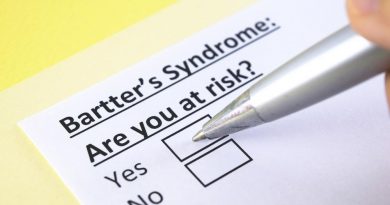Immune system and mental health are connected

Our understanding of how our psyche affects our immune system—and vice versa—has been limited. Until now.
Many people have long believed that there is a connection between mental health and the immune system, but we’ve known very little about what the relevant biological mechanisms might be.
“Most people have had the sense of this connection, but as doctors we haven’t quite kept up,” says Associate Professor Solveig Merete Klæbo Reitan at NTNU’s Department of Mental Health.
So the field has been left to alternative therapists instead. But that is changing.
“This link is no longer controversial among doctors. But it’s new. We’re finding that patients are happy about the change,” says Klæbo Reitan.
She practices at St. Olavs Hospital, specializing in psychiatry, and also holds a doctorate in immunology. Now, interest in the connection between the psyche and the immune system—and the physiological connections—is stronger than before, including among doctors.
Artificial separation
The cells of the immune system communicate using signal molecules called cytokines. The cells of the nervous system send signals by means of signal molecules called neurotransmitters.
“Both of these cells are small molecules that have the same type of structure and
configuration,” says Klæbo Reitan. “The distinction between them is something human beings have invented. We’re not talking about two different systems. Now it’s become clear that the signal molecules in the immune system also transmit to the nervous system and vice versa.
Serious research has been scarce in this field. But meditating and having some kind of emotional balance may actually influence your immune system.
More research is needed. And more research is underway.
Mentally ill are more susceptible
Klæbo Reitan is part of a new research project that will address the connection between psychoses and the immune system.
“We know that people with mental disorders are also more susceptible to various inflammations in the body and to immune system disorders. This indicates that an interaction exists,” says Klæbo Reitan.
The opposite applies too, of course. We also know that people who have been subjected to neglect or childhood abuse are more susceptible to various diseases of the immune system.
That’s why people with psychosis should be given prednisolone—a steroid drug that can curb inflammation—to see if the treatment can have a beneficial effect on mental health.
Klæbo Reitan ponders whether we might be able to prevent mental disorders by treating the immune system.
The universities in Stavanger, Bergen and Utrecht are collaborating with NTNU on the research. The first results are probably four to five years away, since this kind of research takes time.
No ready-made solution
How about thinking your way into good health?
Source: Read Full Article



